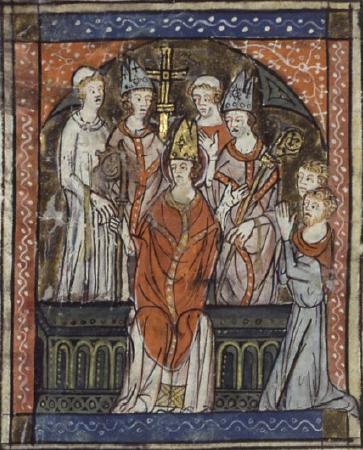|
Max Kämper
Max Kämper (born December 16, 1879 in Jüterbog, † November 10, 1916 at Sailly-Saillisel) was a German mining engineer. His 1908 survey and map of Mammoth Cave, Kentucky, assisted by cave guide Ed Bishop, represent the first accurate instrumental survey of portions of the cave system. Kämper arrived at Mammoth Cave in 1908 and left 8 months later in 1909. Kämper was killed in trench warfare at the Somme River in north-eastern France, on November 10, 1916, during the closing days of the Battle of the Somme. He is buried in the War Cemetery of Cambrai near Arras, France France (), officially the French Republic ( ), is a country primarily located in Western Europe. It also comprises of Overseas France, overseas regions and territories in the Americas and the Atlantic Ocean, Atlantic, Pacific Ocean, Pac .... References External links Max Kämper and the Mammoth Cave Connection– (English and German) describes the search for and discovery of Max Kaemper's ... [...More Info...] [...Related Items...] OR: [Wikipedia] [Google] [Baidu] |
Max Kaemper
Max or MAX may refer to: Animals * Max (dog) (1983–2013), at one time purported to be the world's oldest living dog * Max (English Springer Spaniel), the first pet dog to win the PDSA Order of Merit (animal equivalent of OBE) * Max (gorilla) (1971–2004), a western lowland gorilla at the Johannesburg Zoo who was shot by a criminal in 1997 Brands and enterprises * Australian Max Beer * Max Hamburgers, a fast-food corporation * MAX Index, a Hungarian domestic government bond index * Max Fashion, an Indian clothing brand Computing * MAX (operating system), a Spanish-language Linux version * Max (software), a music programming language * Commodore MAX Machine * Multimedia Acceleration eXtensions, extensions for HP PA-RISC Films * ''Max'' (1994 film), a Canadian film by Charles Wilkinson * ''Max'' (2002 film), a film about Adolf Hitler * ''Max'' (2015 film), an American war drama film Games * '' Dancing Stage Max'', a 2005 game in the ''Dance Dance Revolution'' series * ''DDRM ... [...More Info...] [...Related Items...] OR: [Wikipedia] [Google] [Baidu] |
Arras, France
Arras ( , ; pcd, Aro; historical nl, Atrecht ) is the prefecture of the Pas-de-Calais department, which forms part of the region of Hauts-de-France; before the reorganization of 2014 it was in Nord-Pas-de-Calais. The historic centre of the Artois region, with a Baroque town square, Arras is in Northern France at the confluence of the rivers Scarpe and Crinchon. The Arras plain is on a large chalk plateau bordered on the north by the Marqueffles fault, on the southwest by the Artois and Ternois hills, and on the south by the slopes of Beaufort-Blavincourt. On the east it is connected to the Scarpe valley. Established during the Iron Age by the Gauls, the town of Arras was first known as ''Nemetocenna'', which is believed to have originated from the Celtic word ''nemeton'', meaning 'sacred space.' Saint Vedast (or St. Vaast) was the first Catholic bishop in the year 499 and tried to eliminate paganism among the Franks. By 843, Arras was seat of the County of Artois which be ... [...More Info...] [...Related Items...] OR: [Wikipedia] [Google] [Baidu] |
People From Jüterbog
A person ( : people) is a being that has certain capacities or attributes such as reason, morality, consciousness or self-consciousness, and being a part of a culturally established form of social relations such as kinship, ownership of property, or legal responsibility. The defining features of personhood and, consequently, what makes a person count as a person, differ widely among cultures and contexts. In addition to the question of personhood, of what makes a being count as a person to begin with, there are further questions about personal identity and self: both about what makes any particular person that particular person instead of another, and about what makes a person at one time the same person as they were or will be at another time despite any intervening changes. The plural form "people" is often used to refer to an entire nation or ethnic group (as in "a people"), and this was the original meaning of the word; it subsequently acquired its use as a plural form of per ... [...More Info...] [...Related Items...] OR: [Wikipedia] [Google] [Baidu] |
German Mining Engineers
German(s) may refer to: * Germany (of or related to) **Germania (historical use) * Germans, citizens of Germany, people of German ancestry, or native speakers of the German language ** For citizens of Germany, see also German nationality law **Germanic peoples (Roman times) * German language **any of the Germanic languages * German cuisine, traditional foods of Germany People * German (given name) * German (surname) * Germán, a Spanish name Places * German (parish), Isle of Man * German, Albania, or Gërmej * German, Bulgaria * German, Iran * German, North Macedonia * German, New York, U.S. * Agios Germanos, Greece Other uses * German (mythology), a South Slavic mythological being * Germans (band), a Canadian rock band * "German" (song), a 2019 song by No Money Enterprise * ''The German'', a 2008 short film * "The Germans", an episode of ''Fawlty Towers'' * ''The German'', a nickname for Congolese rebel André Kisase Ngandu See also * Germanic (other) * Germa ... [...More Info...] [...Related Items...] OR: [Wikipedia] [Google] [Baidu] |


_1938.jpg)